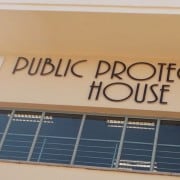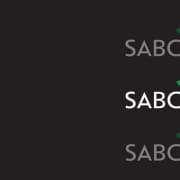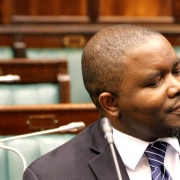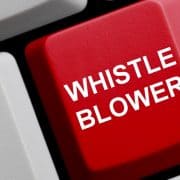|
Getting your Trinity Audio player ready...
|
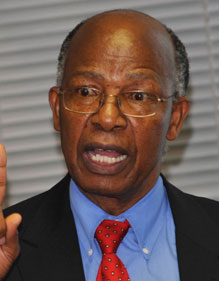 Corruption Watch, the Right 2 Know campaign (R2K), and other stakeholders will be shining the spotlight on the invaluable role of whistleblowers on Saturday 5 April.
Corruption Watch, the Right 2 Know campaign (R2K), and other stakeholders will be shining the spotlight on the invaluable role of whistleblowers on Saturday 5 April.
The organisations will be co-hosting a meeting in Soweto, which will feature real-life whistleblowers, including Mike and Cecilia Tshishonga, telling their stories and sharing their experiences about blowing the whistle on corruption.
The event, which is open to the public, will also feature the screening of a short film titled Whistleblowing and produced by the Open Democracy Advice Centre (Odac). The film documents Mike Tshisonga's fight to expose wrongdoing in the Department of Justice.
It will be followed by a discussion with whistleblowers, including Tshitonga, on why whistleblowing is important and what organisations can do to promote the rights of whistleblowers.
“The event is aimed raising awareness on whistleblowers as heroes from all walks of life,” said Corruption Watch’s stakeholder relations manager Ronald Menoe. “We aim to achieve this through public statements and media campaigns, as well as through solidarity events, road shows and rallies. There will be more rallies like this one in other communities.”
It’s important that organisations such as Corruption Watch give whistleblowers a public face, added Menoe, and create opportunities for dialogue with whistleblowers and the public at large.
"For too long now, whistleblowers in South Africa have not only been victimised and punished by employers, but have not been celebrated and given the opportunity to share their stories and experiences with the general public, and more especially those in poorer communities who are the ones who are worst affected by corruption and mismanagement," said Dale McKinley of R2K.
He explained that R2K will partner with other organisations such as Corruption Watch on a programme of public events at which various whistleblowers will have such opportunities and where community members will be able to hear about the importance of whistleblowing.
"We should all embrace and celebrate those with the courage and conviction to serve their communities and the country by speaking truth to power," he said, adding that the Soweto event is the first in this programme which R2k hopes to take all around South Africa.
Follow the hashtag #whistleCWR2K on Twitter for live updates from the event.
DETAILS:
Date and time:
Saturday 5 April from 10am to 12pm.
Where is it:
SECC Career Centre,
Corner of Chris Hani Drive (formerly Old Potch Road) and Immink Drive,
Baragwanath, Soweto.
Turn right at the BP garage. Click here for a Google map.
Who will be there:
Corruption Watch, R2K, whistleblower Mike Tshishonga, and others.
Contact:
Ronald Menoe (Corruption Watch): 072 577 8419
Dale McKinley (R2K): 072 429 4086
Whistleblowers' handbook published
To coincide with the event, Corruption Watch has released a brand new e-book focused on whistleblowers. In the book we talk about what it means to be a whistleblower, who can be a whistleblower, how to do it, and what laws protect the whistleblower. We also share the real-life stories of whistleblowers who chose to not look the other way.
This information will help you to make the right decision if you ever find yourself in the same situation. To download our whistleblowers’ e-book, please visit our new community platform Corruption Watch Connected, and join the whistleblower's group. You must be logged in to download the file.
“Most people do not report wrongdoings by those in power in the workplace or in communities because they fear to be victimised,” said Menoe. “So it’s also important that engagement be made with employers and those in power to understand the laws that we have in place to protect whistleblowers.”
Strengthening whistleblowers’ legal protection
At a panel discussion on corruption held earlier in the week in Stellenbosch, Public Protector Thuli Madonsela said that whistleblowers in South Africa need more protection.
She was addressing the event, which was organised by Odac, the Right2Know Campaign and Stellenbosch University’s School of Public Leadership. Academics, lawyers and civil society organisations – including Corruption Watch – participated. Odac also released the results of research on empowering whistleblowers – download the document here.
The discussion centred on the amendment of laws, including the Protected Disclosures Act, that protect whistleblowers.
Civil society organisations made various suggestions for consideration, such as introducing the practice used in other countries of incentives to encourage whistleblowing. For instance, the whistleblower is rewarded with a portion of funds recovered, if the case involves money and is successfully prosecuted.
Another gap in South Africa’s legislation, said Madonsela, was a provision to protect whistleblowers from being charged with wrongdoing they were not accused of prior to blowing the whistle.


